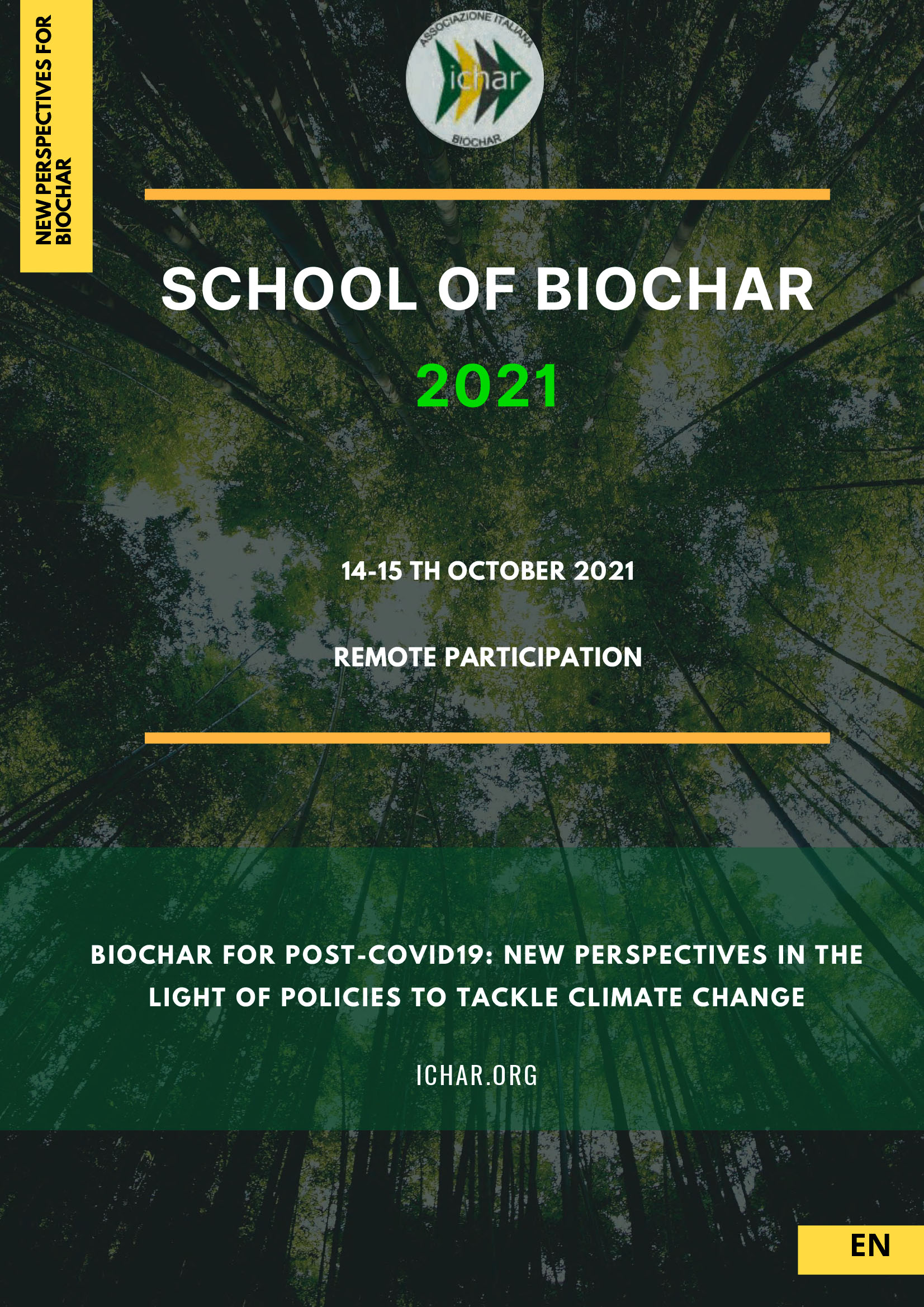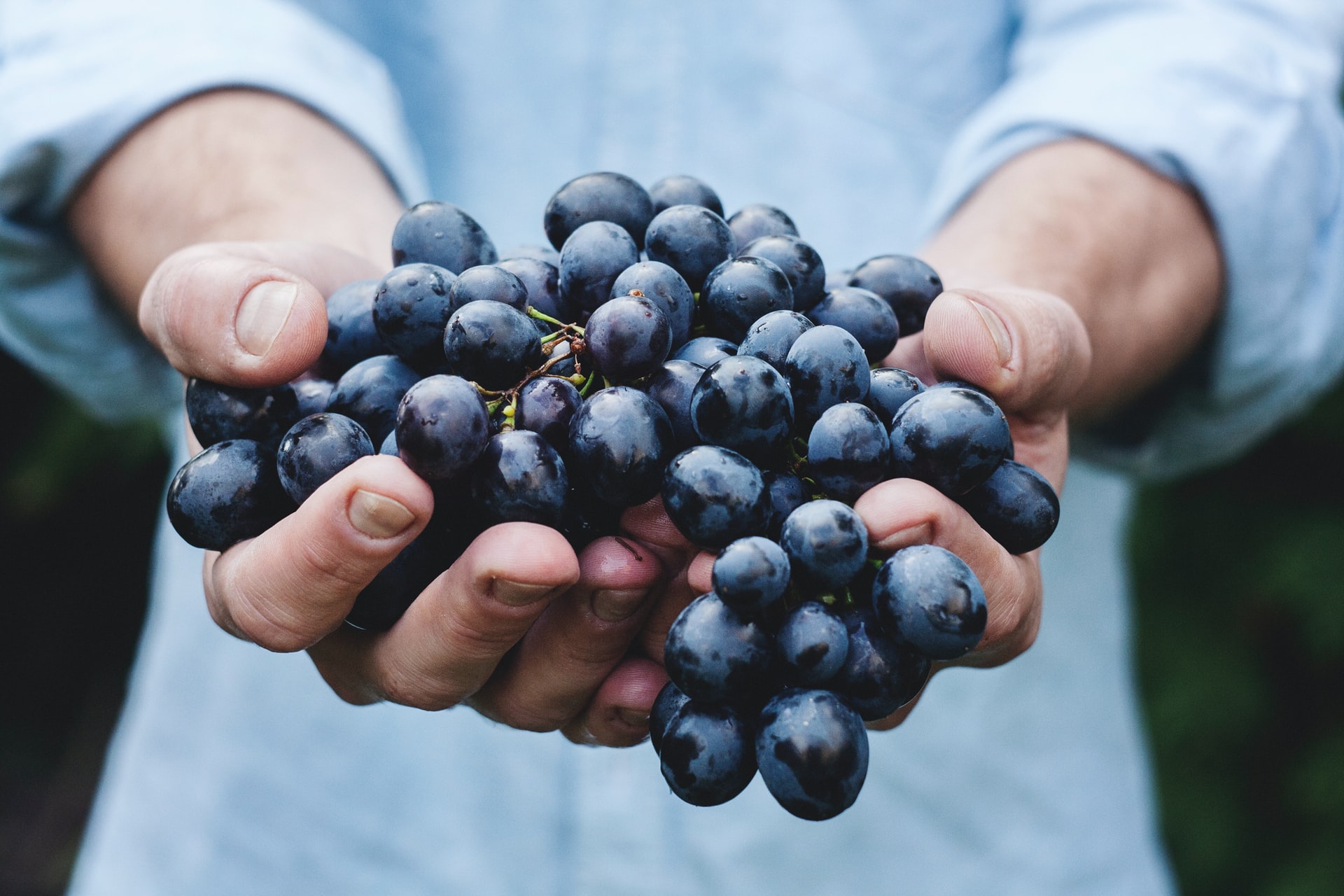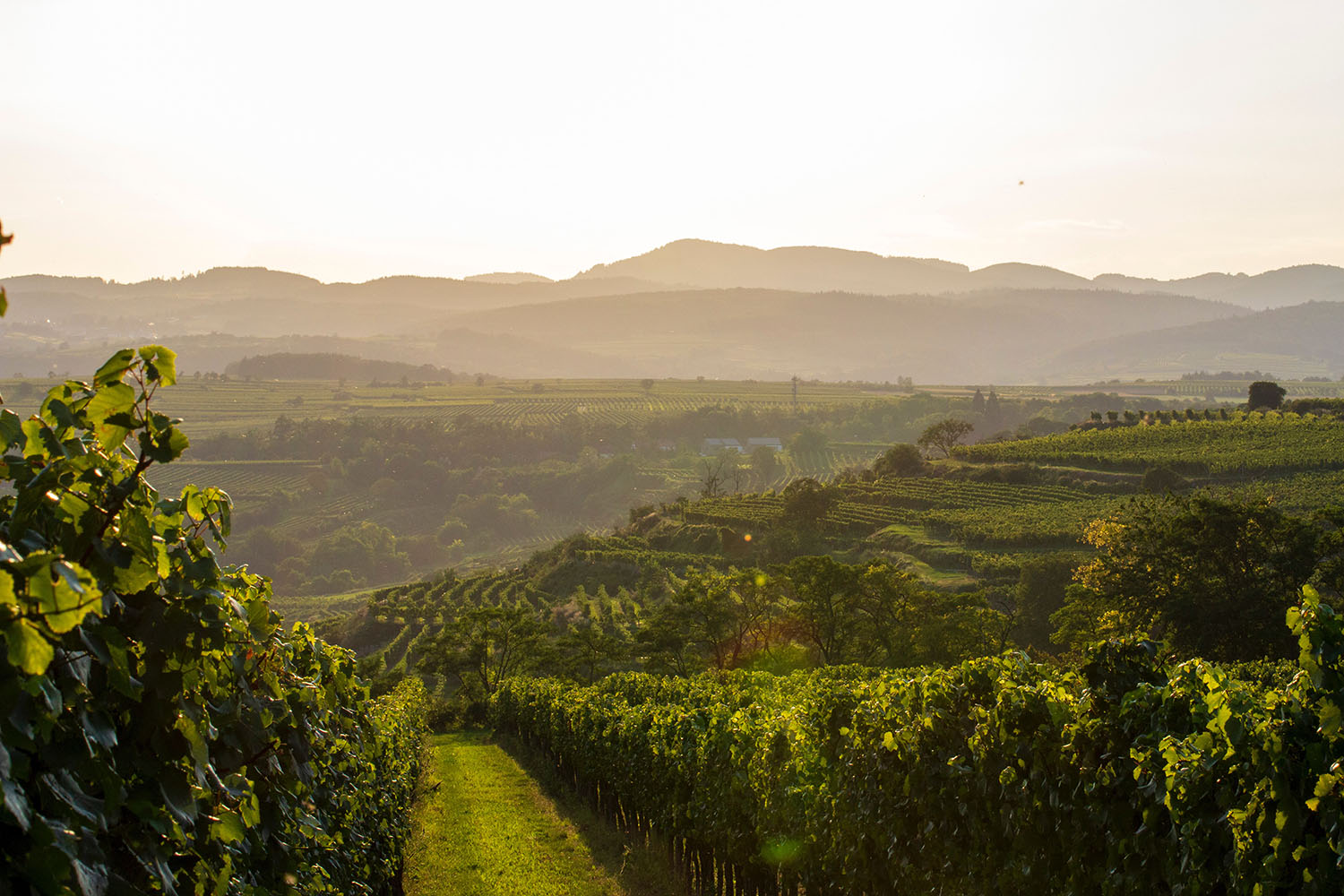BTF @ Iberian Ecological Society
Uncategorized
3-8th July 2022, Aveiro

Black to the future project @ the 2nd meeting of the Iberian Ecological Society (SIBECOL), the XXI conference of the Iberian Association of Limnology (AIL) and the 21st National Congress of Ecology of the Portuguese Ecological Society (SPECO).
On July 2022 the “Black to the Future” (BTF) project was presented at the 2nd meeting of the Iberian Ecological Society (SIBECOL), the XXI conference of the Iberian Association of Limnology (AIL) and the 21st National Congress of Ecology of the Portuguese Ecological Society (SPECO) that were held in Aveiro, Portugal. In particular, the project was illustrated in the 10th special session called “Achieving land-based climate neutrality in agroecosystems”.
Detailed program and further info to the following link.
Considerable was the contribution held by María Luz Cayuela from CSIC (Consejo Superior de Investigaciones Cientificas) who presented a study on biochar entitled “Biochar as a Negative Emissions Technology in Mediterranean Agroecosystems” and all the advantages of using Biochar in agriculture. The BTF project was shown as an example of biochar utilization during the summer, in order to face the water shortage in the Iberic peninsula. In fact, it was shown how the biochar could increase the available water content in the soil of 10-20%.
The event, in which CSIC was hosted, was organised by 3 iberian organisation:
– The Iberian Society of Ecology (SIBECOL) groups together professionals who are dedicated to the study of all areas of the science of Ecology (theoretical, terrestrial, marine, continental waters and border ecosystems). Established in July 2018, SIBECOL was born with the purpose of promoting the multidisciplinary nature of the study of natural systems, and of disseminating ecological and sustainability values.
– The Iberian Association of Limnology (AIL) promotes and publicises limnological studies within the Iberian space. Science, which brings together the different activities of this association, is essential in solving water problems in our society. The AIL is particularly concerned about challenges arising from the use of aquatic resources and aims to encourage and disseminate scientific studies applied to the management and conservation of aquatic ecosystems. For this reason, the members of AIL include scientists, naturalists, professionals involved in the water industry and, in short, anyone interested in the management of inland waters.
– The Portuguese Ecological Society (SPECO) aims to reach all who use ecological science as a base to nature conservation and environmental management. Moreover, the society develops scientific or technological activities in the fields of Ecology and sustainable development, fulfilling a long time void in the national scientific community, a meeting point among several different fields.
Uncategorized
3-8th July 2022, Aveiro

Black to the future project @ the 2nd meeting of the Iberian Ecological Society (SIBECOL), the XXI conference of the Iberian Association of Limnology (AIL) and the 21st National Congress of Ecology of the Portuguese Ecological Society (SPECO).
On July 2022 the “Black to the Future” (BTF) project was presented at the 2nd meeting of the Iberian Ecological Society (SIBECOL), the XXI conference of the Iberian Association of Limnology (AIL) and the 21st National Congress of Ecology of the Portuguese Ecological Society (SPECO) that were held in Aveiro, Portugal. In particular, the project was illustrated in the 10th special session called “Achieving land-based climate neutrality in agroecosystems”.
Detailed program and further info to the following link.
Considerable was the contribution held by María Luz Cayuela from CSIC (Consejo Superior de Investigaciones Cientificas) who presented a study on biochar entitled “Biochar as a Negative Emissions Technology in Mediterranean Agroecosystems” and all the advantages of using Biochar in agriculture. The BTF project was shown as an example of biochar utilization during the summer, in order to face the water shortage in the Iberic peninsula. In fact, it was shown how the biochar could increase the available water content in the soil of 10-20%.
The event, in which CSIC was hosted, was organised by 3 iberian organisation:
- The Iberian Society of Ecology (SIBECOL) groups together professionals who are dedicated to the study of all areas of the science of Ecology (theoretical, terrestrial, marine, continental waters and border ecosystems). Established in July 2018, SIBECOL was born with the purpose of promoting the multidisciplinary nature of the study of natural systems, and of disseminating ecological and sustainability values.
- The Iberian Association of Limnology (AIL) promotes and publicises limnological studies within the Iberian space. Science, which brings together the different activities of this association, is essential in solving water problems in our society. The AIL is particularly concerned about challenges arising from the use of aquatic resources and aims to encourage and disseminate scientific studies applied to the management and conservation of aquatic ecosystems. For this reason, the members of AIL include scientists, naturalists, professionals involved in the water industry and, in short, anyone interested in the management of inland waters.
- The Portuguese Ecological Society (SPECO) aims to reach all who use ecological science as a base to nature conservation and environmental management. Moreover, the society develops scientific or technological activities in the fields of Ecology and sustainable development, fulfilling a long time void in the national scientific community, a meeting point among several different fields.
BTF @ Remedia 2022
Uncategorized
21st - 22nd April 2022

Producción ecológica, sostenibilidad y economía circular frente al cambio climático.
Córdoba 21-22 de abril de 2022
CEBAS-CSIC attended the ninth edition of Remedia workshop entitled “Eco-friendly production, sustainability, and circular economy in response to climate change”, which took place in Cordoba on the 21st-22nd of April, 2022. This event is organised by the Universidad de Córdoba, by means of the “Chair of Organic Production ECOVALIA-Clemente Mata”.
Among the speeches, outstanding was the contribution held by María Sánchez-García, María Luz Cayuela, Raúl Castejón-del Pino and Miguel Ángel Sánchez-Monedero from the “Department of soil and water preservation and management of organic waste” (Universidad de Córdoba). Their speech, entitled “Application of biochar and compost enriched with biochar as a strategy of carbon sequestration in olive trees: perspectives from EIT food project Black to the Future”, showed two methods of C sequestration through biochar and compost with an enrichment of biochar.
The study was co-financed with European funds from EIT FOOD “Black to the Future” and the Ministry of Science and Innovation, as well as funds from UE-FEADER.
Detailed programme and further info available at the following link.
Remedia is a national scientific network founded in 2012. Among its objectives, one of the main purposes is the alignment to the SDGs established by ONU. In particular, Remedia aims at the mitigation of global warming related to the primary sector (namely agriculture and livestock, as well as the agrifood and forestry sector), including the reduction of GHG emissions and enabling C sequestration.
Uncategorized
21st - 22nd April 2022

Producción ecológica, sostenibilidad y economía circular frente al cambio climático.
Córdoba 21-22 de abril de 2022
CEBAS-CSIC attended the ninth edition of Remedia workshop entitled “Eco-friendly production, sustainability, and circular economy in response to climate change”, which took place in Cordoba on the 21st-22nd of April, 2022. This event is organised by the Universidad de Córdoba, by means of the “Chair of Organic Production ECOVALIA-Clemente Mata”.
Among the speeches, outstanding was the contribution held by María Sánchez-García, María Luz Cayuela, Raúl Castejón-del Pino and Miguel Ángel Sánchez-Monedero from the “Department of soil and water preservation and management of organic waste” (Universidad de Córdoba). Their speech, entitled “Application of biochar and compost enriched with biochar as a strategy of carbon sequestration in olive trees: perspectives from EIT food project Black to the Future”, showed two methods of C sequestration through biochar and compost with an enrichment of biochar.
The study was co-financed with European funds from EIT FOOD “Black to the Future” and the Ministry of Science and Innovation, as well as funds from UE-FEADER.
Detailed programme and further info available at the following link.
Remedia is a national scientific network founded in 2012. Among its objectives, one of the main purposes is the alignment to the SDGs established by ONU. In particular, Remedia aims at the mitigation of global warming related to the primary sector (namely agriculture and livestock, as well as the agrifood and forestry sector), including the reduction of GHG emissions and enabling C sequestration.
Un progetto di economia circolare e agricoltura sostenibile
Uncategorized
save the date
8 luglio 2022 | 9:00

Si è concluso con successo il primo anno del progetto Europeo “Black to the Future“ co-finanziato dall’ European Institute of Innovation and Technology -EIT FOOD- e coordinato dal gruppo Caviro.
Il progetto si prefigge lo scopo di testare le potenzialità di un nuovo ammendante chiamato “CBmix®”, una miscela di compost e biochar, un materiale carbonioso derivato dalla degradazione termica delle potature agricole che permette di arricchire i suoli di sostanza organica e combattere la desertificazione il cambiamento climatico grazie al sequestro di CO2 in suolo.
Il webinar presenterà il lavoro svolto e le prospettive future. Presenteranno esperti nazionali ed internazionali del settore agronomico e ambientale di diverse organizzazioni: Caviro, Università di Bologna, Consiglio Nazionale delle Ricerche, Cyprus University of Technology, Consejo Superior de Investigaciones Cientificas (CSIC), Urban Crop Solutions, Consorzio Italiano Compostatori, e Associazione Nazionale Biochar (ICHAR).
Il webinar sarà in lingua italiana o inglese con traduzione simultanea.
Prossimamente seguirà Programma definitivo del webinar
Registrazione gratuita
Link per la registrazione
Uncategorized
save the date
8 luglio 2022 | 9:00

Si è concluso con successo il primo anno del progetto Europeo “Black to the Future“ co-finanziato dall’ European Institute of Innovation and Technology -EIT FOOD- e coordinato dal gruppo Caviro.
Il progetto si prefigge lo scopo di testare le potenzialità di un nuovo ammendante chiamato “CBmix®”, una miscela di compost e biochar, un materiale carbonioso derivato dalla degradazione termica delle potature agricole che permette di arricchire i suoli di sostanza organica e combattere la desertificazione il cambiamento climatico grazie al sequestro di CO2 in suolo.
Il webinar presenterà il lavoro svolto e le prospettive future. Presenteranno esperti nazionali ed internazionali del settore agronomico e ambientale di diverse organizzazioni: Caviro, Università di Bologna, Consiglio Nazionale delle Ricerche, Cyprus University of Technology, Consejo Superior de Investigaciones Cientificas (CSIC), Urban Crop Solutions, Consorzio Italiano Compostatori, e Associazione Nazionale Biochar (ICHAR).
Il webinar sarà in lingua italiana o inglese con traduzione simultanea.
Prossimamente seguirà Programma definitivo del webinar
Registrazione gratuita
Link per la registrazione
The first year of Black to the Future
Uncategorized
it’s time to sum up
The first year of Black to the Future has passed and it’s time to sum up!!
Several activities have been conducted in 2021 although the Covid-19 third wave. Black to Future’s consortium has been engaged in activities that included scientific experiments, market and business analyzes and educational events together with the new generations of high school students
TIME 2 SCIENCE!
We planned several experimental trials with application of biochar, compost and CBmix™ as soil amendment to evaluate agronomical aspects of biochar and CBmix™ related to soil health with especial attention on soil organic matter (SOM), nutrient dynamics (mainly N and P) and soil microbiology. Additionally, further agronomical parameters related to crop yield and quality and plant nutritional status have been evaluated.

Four locations have been selected to set up the field scale experiments which were designed to cover a wide range of cultivars and agroclimatic conditions of relevance for vast areas of South Europe prone to soil degradation process. The crops investigated included: olive orchards in South Spain managed by CSIC; vineyards, managed by CRPV and University of Bologna in two locations in Italy; a pomegranate orchard managed by Cyprus University of Technology.



The application of a CBmix™ showed a synergistic impact on the levels of dissolved N in soil, suggesting a boost on the microbial processes transforming N, and more specifically on the concentration of Nitrous Oxide
Black to the Future experiments showed that the burying of CBmix™, Compost, and Biochar, at about 30-35 cm, in existing vineyards, at the vegetative restart, does not involve particular operational difficulties. Furthermore, in the field trials carried out in Italy, on loamy soils, with a sub-alkaline pH, a good level of mineralization of the compost was observed and, therefore, a constant supply of nutrients for the vine. The application of the innovative matrices did not negatively interfere with the phenological development of the plant. The vines of the plots in which CBmix™, Compost and Biochar were distributed showed a normal supply of mineral elements at veraison and an appreciable vegetative-productive balance, despite the anomalous meteorological course of the 2021 vintage. In addition, higher production values were highlighted in plots where CBmix™, Compost and Biochar were distributed, especially in those where CBmix™ was buried.
Briefly:
• Biochar and CBmix™ treatments led to the highest and most persistent increase in TOC in soil, whereas compost significantly increased soluble C and N.
• Application of CBmix™ showed a synergistic effect, suggesting a boost on the microbial processes transforming N, without a parallel increase in N2O emissions.
• Crop yield and olive tree nutritional status were not significantly affected by any of the organic amendments in the time frame of the project.
• In CBmix™ plots a good level of mineralization of the Compost was observed and, therefore, a constant supply of nutrients for the grapevine.
• Higher productivity values were highlighted in plots treated with CBmix™ compared to the control.
• CBmix™ distribution improved Total Soluble Solids concentration, at harvest, in two different grapevine varieties.
TIME 2 BUSINESS!
Nowadays, biochar is a material well known not only to the scientific community. Indeed, its benefits for soil improvement and its CO2 storage capacity have been extensively illustrated. The global biochar market reached a valuation of US$ 8 Mio in 2020, which amounts to around 0.23% share of the overall charcoal market. Sales of biochar are slated to rise at a CAGR of 11% to top US$ 23 Mio by 2031. Demand for pyrolysis technology in biochar is set to increase at a CAGR of 10% across the assessment period of 2021 to 2031 (source: Fact.MR- Biochar Market).
International Biochar Initiative (IBI) documented the number of companies operating in biochar sector, counting 326 companies in 2015.
Governments are pushing people to use biochar for farming because it can reduce greenhouse gas emissions such as nitrous oxide and methane. With increase in technological developments in sustainable agriculture, biochar uses in agriculture from both, developed and developing countries, has been steadily increasing. However, how demonstrated by Meyer (Meyer et al., 2017), since 2011 when the European Biochar Certificate (EBC) was introduced, biochar was a class of material not yet foreseen in EU and member states national legal frameworks. Governmental administrations of EU countries needed, therefore, a sophisticated product definition in order to integrate biochar in existing legally binding fertilizer and soil ordinances (where these existed).
In Italy, the edition No. 186 of the Italian law gazette “Gazzetta Ufficiale Della Republica Italiana” published a modification of the Annexes 2 and 7 of the fertilizer decree number 75 of 29 April 2010 (Decreto Legislativo 75/2010). With these modifications, made following a request presented by the Italian Biochar Association (ICHAR), the Italian Ministry of Agriculture, Food and Forestry included biochar in the list of soil amendments which are permitted to be used in the Italian agricultural sector and defined technical specifications for this product.
Although some European Countries accept the use of biochar in agriculture as a soil improver, the use of biochar as an additive for compost is not envisaged.
The benefit that biochar can bring to compost has been scientifically proven. It can improve composting performance, humification process, enhances microbial diversity and activity, reduces greenhouse gas emissions, and immobilizes potentially toxic metals (PTMs) and organic pollutants associated with the compost.
EU Directive 2019/1009 (not yet public, from 2022) shows that mix biochar-compost can be applied without co-maturation with final mixing of compost (CMC3) and biochar (CMC 14) to originate PFC – 3 “soil improver” (it is also possible to co-ripen the compost with to make a compost (CMC 3) with a limited percentage (less than 5% by weight) of biochar; this CMC 3 (with 5% co-matured biochar) can be mixed at the end of the process with other biochar to obtain PFC 3).
From a legislative point of view, the Black to the Future project plans to submit a formal request to the Ministry of Agriculture to request that the European directive be transposed quickly to allow the use of the biochar-compost mix.
This legislative process will ensure the registration of the CBMIX in the national fertilizer register.
The innovative aspects behind the production of biochar-compost mix lay in the accurate valorisation of waste materials as production inputs and, on the offer side, in the provision of an agronomic product characterized by enhanced attributes related to fertilization, soil amendment capacity and carbon sequestration. The value proposition meets several advantages that farmers consider relevant about the use of organic fertilizers. The circular business model mapped out opens to further investigations, including cost-benefit analysis to measure profitability, and SWOT analysis concerning the opportunity to produce the biochar-compost mix in different contexts.

Given the needs of the startup and the analysis of the problems, it is necessary to carry out several preliminary actions:
Action 1. To carry on a process with the EU authorities about the inclusion of the new CBmix™ (with a mix of compost and biochar from the early stages of production) in the European regulations on fertilizers to have the possibility of using both the CBMix™ products.
Action 2. To carry out additional research on the use, management, conservation, and best practices on both the CBMix™ products to have the chance to give all the technical assistance to the farmers.
Action 3. To carry out additional research on pelletizing techniques to make the startup more profitable.
Action 4. To identify targets, competitors and to analyze the market context after the end of the 3 actions above.
The key moment is certainly July 2022, the month in which the New European Fertilizer Regulation (new (EU) 1009/2019) will be made public.
TIME TO SCHOOL!
Educational events with high school students and training with farmers to spread Black to the Future activities and increase farmer and students’ awareness regarding sustainable agriculture and circular economy.
Three educational farm labs have been organized. The educational programme allowed to provide several competencies to the students according to the EIT competency framework.

We organized a 3h class with students showing the scientific methodology and the business point of view. But, above all the circular economy and regenerative agriculture vision have been communicated.
The students had the chance to learn more in detail as a company can do a new business with circularity doing good to the Environment and our Earth.
Uncategorized
3 december 2021
The first year of Black to the Future has passed and it’s time to sum up!!
Several activities have been conducted in 2021 although the Covid-19 third wave. Black to Future’s consortium has been engaged in activities that included scientific experiments, market and business analyzes and educational events together with the new generations of high school students
TIME 2 SCIENCE!
We planned several experimental trials with application of biochar, compost and CBmix™ as soil amendment to evaluate agronomical aspects of biochar and CBmix™ related to soil health with especial attention on soil organic matter (SOM), nutrient dynamics (mainly N and P) and soil microbiology. Additionally, further agronomical parameters related to crop yield and quality and plant nutritional status have been evaluated.

Four locations have been selected to set up the field scale experiments which were designed to cover a wide range of cultivars and agroclimatic conditions of relevance for vast areas of South Europe prone to soil degradation process. The crops investigated included: olive orchards in South Spain managed by CSIC; vineyards, managed by CRPV and University of Bologna in two locations in Italy; a pomegranate orchard managed by Cyprus University of Technology.



The application of a CBmix™ showed a synergistic impact on the levels of dissolved N in soil, suggesting a boost on the microbial processes transforming N, and more specifically on the concentration of Nitrous Oxide
Black to the Future experiments showed that the burying of CBmix™, Compost, and Biochar, at about 30-35 cm, in existing vineyards, at the vegetative restart, does not involve particular operational difficulties. Furthermore, in the field trials carried out in Italy, on loamy soils, with a sub-alkaline pH, a good level of mineralization of the compost was observed and, therefore, a constant supply of nutrients for the vine. The application of the innovative matrices did not negatively interfere with the phenological development of the plant. The vines of the plots in which CBmix™, Compost and Biochar were distributed showed a normal supply of mineral elements at veraison and an appreciable vegetative-productive balance, despite the anomalous meteorological course of the 2021 vintage. In addition, higher production values were highlighted in plots where CBmix™, Compost and Biochar were distributed, especially in those where CBmix™ was buried.
Briefly:
• Biochar and CBmix™ treatments led to the highest and most persistent increase in TOC in soil, whereas compost significantly increased soluble C and N.
• Application of CBmix™ showed a synergistic effect, suggesting a boost on the microbial processes transforming N, without a parallel increase in N2O emissions.
• Crop yield and olive tree nutritional status were not significantly affected by any of the organic amendments in the time frame of the project.
• In CBmix™ plots a good level of mineralization of the Compost was observed and, therefore, a constant supply of nutrients for the grapevine.
• Higher productivity values were highlighted in plots treated with CBmix™ compared to the control.
• CBmix™ distribution improved Total Soluble Solids concentration, at harvest, in two different grapevine varieties.
TIME 2 BUSINESS!
Nowadays, biochar is a material well known not only to the scientific community. Indeed, its benefits for soil improvement and its CO2 storage capacity have been extensively illustrated. The global biochar market reached a valuation of US$ 8 Mio in 2020, which amounts to around 0.23% share of the overall charcoal market. Sales of biochar are slated to rise at a CAGR of 11% to top US$ 23 Mio by 2031. Demand for pyrolysis technology in biochar is set to increase at a CAGR of 10% across the assessment period of 2021 to 2031 (source: Fact.MR- Biochar Market).
International Biochar Initiative (IBI) documented the number of companies operating in biochar sector, counting 326 companies in 2015.
Governments are pushing people to use biochar for farming because it can reduce greenhouse gas emissions such as nitrous oxide and methane. With increase in technological developments in sustainable agriculture, biochar uses in agriculture from both, developed and developing countries, has been steadily increasing. However, how demonstrated by Meyer (Meyer et al., 2017), since 2011 when the European Biochar Certificate (EBC) was introduced, biochar was a class of material not yet foreseen in EU and member states national legal frameworks. Governmental administrations of EU countries needed, therefore, a sophisticated product definition in order to integrate biochar in existing legally binding fertilizer and soil ordinances (where these existed).
In Italy, the edition No. 186 of the Italian law gazette “Gazzetta Ufficiale Della Republica Italiana” published a modification of the Annexes 2 and 7 of the fertilizer decree number 75 of 29 April 2010 (Decreto Legislativo 75/2010). With these modifications, made following a request presented by the Italian Biochar Association (ICHAR), the Italian Ministry of Agriculture, Food and Forestry included biochar in the list of soil amendments which are permitted to be used in the Italian agricultural sector and defined technical specifications for this product.
Although some European Countries accept the use of biochar in agriculture as a soil improver, the use of biochar as an additive for compost is not envisaged.
The benefit that biochar can bring to compost has been scientifically proven. It can improve composting performance, humification process, enhances microbial diversity and activity, reduces greenhouse gas emissions, and immobilizes potentially toxic metals (PTMs) and organic pollutants associated with the compost.
EU Directive 2019/1009 (not yet public, from 2022) shows that mix biochar-compost can be applied without co-maturation with final mixing of compost (CMC3) and biochar (CMC 14) to originate PFC – 3 “soil improver” (it is also possible to co-ripen the compost with to make a compost (CMC 3) with a limited percentage (less than 5% by weight) of biochar; this CMC 3 (with 5% co-matured biochar) can be mixed at the end of the process with other biochar to obtain PFC 3).
From a legislative point of view, the Black to the Future project plans to submit a formal request to the Ministry of Agriculture to request that the European directive be transposed quickly to allow the use of the biochar-compost mix.
This legislative process will ensure the registration of the CBMIX in the national fertilizer register.
The innovative aspects behind the production of biochar-compost mix lay in the accurate valorisation of waste materials as production inputs and, on the offer side, in the provision of an agronomic product characterized by enhanced attributes related to fertilization, soil amendment capacity and carbon sequestration. The value proposition meets several advantages that farmers consider relevant about the use of organic fertilizers. The circular business model mapped out opens to further investigations, including cost-benefit analysis to measure profitability, and SWOT analysis concerning the opportunity to produce the biochar-compost mix in different contexts.

Given the needs of the startup and the analysis of the problems, it is necessary to carry out several preliminary actions:
Action 1. To carry on a process with the EU authorities about the inclusion of the new CBmix™ (with a mix of compost and biochar from the early stages of production) in the European regulations on fertilizers to have the possibility of using both the CBMix™ products.
Action 2. To carry out additional research on the use, management, conservation, and best practices on both the CBMix™ products to have the chance to give all the technical assistance to the farmers.
Action 3. To carry out additional research on pelletizing techniques to make the startup more profitable.
Action 4. To identify targets, competitors and to analyze the market context after the end of the 3 actions above.
The key moment is certainly July 2022, the month in which the New European Fertilizer Regulation (new (EU) 1009/2019) will be made public.
TIME TO SCHOOL!
Educational events with high school students and training with farmers to spread Black to the Future activities and increase farmer and students’ awareness regarding sustainable agriculture and circular economy.
Three educational farm labs have been organized. The educational programme allowed to provide several competencies to the students according to the EIT competency framework.

We organized a 3h class with students showing the scientific methodology and the business point of view. But, above all the circular economy and regenerative agriculture vision have been communicated.
The students had the chance to learn more in detail as a company can do a new business with circularity doing good to the Environment and our Earth.
S4Forum 2021
Uncategorized
3 december 2021

Mario Roccaro, program manager Educational of EIT FOOD, have successfully organized the 2021 edition of Skills for Future. Roberto Conti, R&D scientist in caviro was invited to show the black to the future case study. following the detailed information.
ENTREPRENEURIAL SKILLS: How do we develop them in school curricula?
Answer this question at the # S4Forum – 3 December 20021 in Catania – to create a dialogue between # SCHOOL and #IINDUSTRY, with EIT Food support with the #Skills for the Future program.
At the #S4Forum we will focus on analyzing and suggesting the best practices of interactions between business and school to offer our #TALENTS a training environment for doing entrepreneurship
Watch the video (from min. 29:34)

Uncategorized
3 december 2021
Mario Roccaro, program manager Educational of EIT FOOD, have successfully organized the 2021 edition of Skills for Future. Roberto Conti, R&D scientist in caviro was invited to show the black to the future case study. following the detailed information.
ENTREPRENEURIAL SKILLS: How do we develop them in school curricula?
Answer this question at the # S4Forum – 3 December 20021 in Catania – to create a dialogue between # SCHOOL and #IINDUSTRY, with EIT Food support with the #Skills for the Future program.
At the #S4Forum we will focus on analyzing and suggesting the best practices of interactions between business and school to offer our #TALENTS a training environment for doing entrepreneurship
Watch the video (from min. 29:34)
Future of Food Conferences 2021
Uncategorized
30 NOVEMBER - 1 DECEMBER 2021

At EIT-FOOD – Future of Food conference 2021 (https://eitfutureoffood.eu/) Black to the future’s activities have been disseminated within the BREAKOUT SESSION 2: Sustainable Agriculture | Soil purpose: Tackling regenerative transition, “Black to the future- Toward healthier soils increasing SOC and storing CO2” by Roberto Conti, R&D scientist at Caviro.
The session was chaired by Prof. Martin Scholten of Wageningen University.
Watch the video (from min. 10:30)

Uncategorized
30 NOVEMBER - 1 DECEMBER 2021
At EIT-FOOD – Future of Food conference 2021 (https://eitfutureoffood.eu/) Black to the future’s activities have been disseminated within the BREAKOUT SESSION 2: Sustainable Agriculture | Soil purpose: Tackling regenerative transition, “Black to the future- Toward healthier soils increasing SOC and storing CO2” by Roberto Conti, R&D scientist at Caviro.
The session was chaired by Prof. Martin Scholten of Wageningen University.
Watch the video (from min. 10:30)
School of Biochar
Uncategorized
14-15 OCTOBER 2021

Black to the future will attends to the fifth edition of School of biochar.
School of biochar 2021- Biochar for post-Covid19: New Perspectives in the light of Policies to tackle climate change.
This event is organized by the Italian Biochar Association (ICHAR) thanks to the oral contribution by Dr. Nicolas Greggio (University of Bologna) entitled “Long term agronomical, physiological and environmental implications of biochar use in agricultural soils” scheduled at 15th October.
Detailed program and further info to the following link.
The Italian Biochar ICHAR Association is a non-profit organization founded in 2009 to promote, in synergy between the world of research and the private sector, solutions, technologies, advanced studies, demonstration activities and educational projects on the application of biochar in agriculture as an innovative strategy to increase global soil fertility and mitigate greenhouse gas emissions.

Uncategorized
14-15 OCTOBER 2021

Black to the future will attends to the fifth edition of School of biochar.
School of biochar 2021- Biochar for post-Covid19: New Perspectives in the light of Policies to tackle climate change.
This event is organized by the Italian Biochar Association (ICHAR) thanks to the oral contribution by Dr. Nicolas Greggio (University of Bologna) entitled “Long term agronomical, physiological and environmental implications of biochar use in agricultural soils” scheduled at 15th October.
Detailed program and further info to the following link.
The Italian Biochar ICHAR Association is a non-profit organization founded in 2009 to promote, in synergy between the world of research and the private sector, solutions, technologies, advanced studies, demonstration activities and educational projects on the application of biochar in agriculture as an innovative strategy to increase global soil fertility and mitigate greenhouse gas emissions.
Joining consortium to develop Biochar
Uncategorized
Biological Charcoal Compost
Black to the future (BTF) is a research project to develop an advanced mix of biological charcoal (biochar) and compost with the goal to reduce soil depletion, increase carbon capture, and improve yield quality. The biochar and compost are obtained from agricultural residues in a circular network where farmers are both feedstock producers and product end users. The co-maturation of this compost and biochar will lead to a ‘CB mix’. The CB mix is compliant with the new EU Fertilising Product Regulation.
The CB mix is designed to improve the properties of soil, especially in terms of nutrient retention and drought resistance. This will benefit both yield quality and quantity. The consortium will target crops such as grapevine, olive, and pomegranate – which produce significant amounts of clippings and biowaste during post-harvest management. The waste will be obtained from these waste streams within a participatory network. Both Farmers and the agro-industry will be able to supply the waste used for the CB mix, within an innovative bio-deposit-return scheme.
Besides the open field and network advantages, indoor hydroponic cultivation is an important part of the project. For this part of the research, all tests will be conducted in the Research Centre of Urban Crop Solutions. In the first phase, crop growth performance using a CB mix in microgreens, baby leaves and herbs will be tested. In the second phase, the impact of using a CB mix on crop and yield quality will be assessed. The objective is to quantify at least two physiological parameters to qualify the BC mix as successful.
The consortium consists of a unique partnership between Urban Crop Solutions – an end-to-end indoor vertical farming solutions provider; Caviro – a wine cooperative in Italy; Enomondo – a company located in North Italy, who will be managing the compost production; the Crop Production Research Centre (CRPV) – a cooperative company located in the North of Italy; the National Council of Scientific Research (CSIC) – the Spanish state agency for scientific research and technological development; the University of Bologna (UNIBO); and the Cyprus University of Technology (CUT).

Uncategorized
Biological Charcoal Compost
Black to the future (BTF) is a research project to develop an advanced mix of biological charcoal (biochar) and compost with the goal to reduce soil depletion, increase carbon capture, and improve yield quality. The biochar and compost are obtained from agricultural residues in a circular network where farmers are both feedstock producers and product end users. The co-maturation of this compost and biochar will lead to a ‘CB mix’. The CB mix is compliant with the new EU Fertilising Product Regulation.
The CB mix is designed to improve the properties of soil, especially in terms of nutrient retention and drought resistance. This will benefit both yield quality and quantity. The consortium will target crops such as grapevine, olive, and pomegranate – which produce significant amounts of clippings and biowaste during post-harvest management. The waste will be obtained from these waste streams within a participatory network. Both Farmers and the agro-industry will be able to supply the waste used for the CB mix, within an innovative bio-deposit-return scheme.
Besides the open field and network advantages, indoor hydroponic cultivation is an important part of the project. For this part of the research, all tests will be conducted in the Research Centre of Urban Crop Solutions. In the first phase, crop growth performance using a CB mix in microgreens, baby leaves and herbs will be tested. In the second phase, the impact of using a CB mix on crop and yield quality will be assessed. The objective is to quantify at least two physiological parameters to qualify the BC mix as successful.
The consortium consists of a unique partnership between Urban Crop Solutions – an end-to-end indoor vertical farming solutions provider; Caviro – a wine cooperative in Italy; Enomondo – a company located in North Italy, who will be managing the compost production; the Crop Production Research Centre (CRPV) – a cooperative company located in the North of Italy; the National Council of Scientific Research (CSIC) – the Spanish state agency for scientific research and technological development; the University of Bologna (UNIBO); and the Cyprus University of Technology (CUT).









